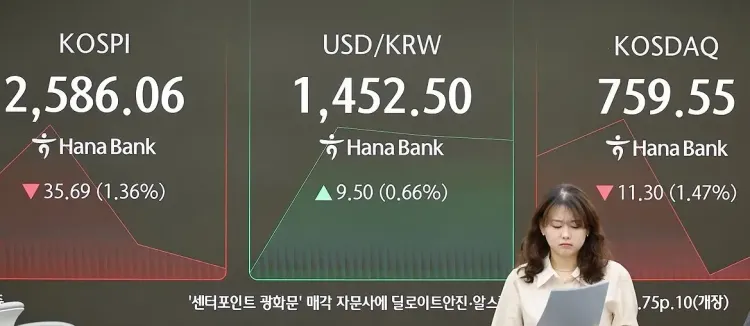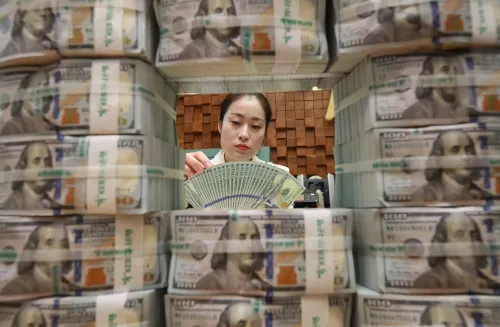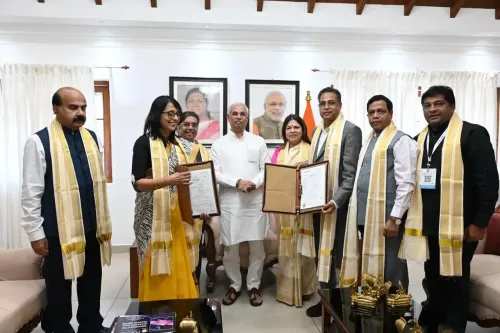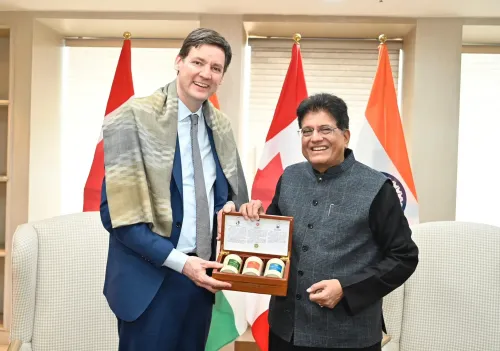South Korea to Conduct Urgent Meetings with Key Industries Following US Tariffs

Synopsis
Key Takeaways
- Emergency meetings with major industries
- Concerns over U.S. tariffs' impact
- Support measures requested by companies
- Potential drop in exports to the U.S.
- Stock market reaction indicates investor concern
Seoul, April 4 (NationPress) The government is set to initiate a series of urgent discussions with representatives from vital South Korean sectors that are anticipated to face challenges due to the substantial tariffs imposed by the United States, as stated by the industry ministry on Friday.
Earlier today, the Ministry of Trade, Industry and Energy convened with officials from the home appliances, display, and machinery sectors and has scheduled an additional meeting with representatives from the rechargeable battery, petrochemical, and textiles sectors on Monday, according to ministry sources.
During the meeting on Friday, companies in the home appliances, display, and machinery industries urged the government for proactive support measures to lessen the impact of U.S. tariffs on local enterprises, which could include export vouchers and emergency financial assistance, as reported by the Yonhap news agency.
These companies raised alarms regarding a potential decline in their exports to the United States and heightened competition in international markets outside of the U.S., according to ministry officials.
On Thursday, U.S. President Donald Trump announced intentions to impose a 10 percent baseline tariff on imports from all foreign nations, along with “reciprocal” tariffs that would enforce 25 percent duties on South Korea, igniting fears of an imminent global trade conflict.
The baseline and reciprocal tariffs are scheduled to take effect on Saturday and Wednesday (U.S. time), respectively.
“The ministry will strive to reduce the adverse effects on local firms by carefully evaluating the impact of reciprocal tariffs across various sectors and leveraging all available government resources to enhance the fundamental competitiveness of our industries,” remarked Lee Seung-ryeol, deputy minister for industry policy.
In the meantime, South Korean stocks experienced a decline for the third consecutive session on Friday, amid the Constitutional Court's landmark decision to remove President Yoon Suk Yeol and escalating worries regarding impending tariff conflicts. The local currency saw a significant rise against the U.S. dollar.
The benchmark Korea Composite Stock Price Index (KOSPI) dropped by 21.28 points, or 0.86 percent, closing at 2,465.42.
Trading volume was steady, with 690.4 million shares valued at 10.7 trillion won ($7.46 billion) exchanging hands, as gainers outnumbered losers with a count of 560 to 328.
Foreign investors sold a net 1.79 trillion won in stocks, while domestic investors bought a net 1.07 trillion won, and institutional investors acquired a net 620.4 billion won.










